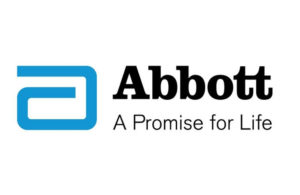 Abbott (NYSE:ABT) announced a new series of programs within its multi-million-dollar initiative to increase diversity in clinical trials and improve care in under-represented populations.
Abbott (NYSE:ABT) announced a new series of programs within its multi-million-dollar initiative to increase diversity in clinical trials and improve care in under-represented populations.
The additions to Abbott’s “Diversity in Clinical Trials” initiative build on partnerships, scholarships and the focus on diversified patients. Abbott applied these to its own clinical trials throughout the initiative’s first year. Within that first year, the company established a Diversity in Clinical Trials Medical Advisory Board. Through $5 million in grants, it also sponsored more than 300 scholarships at four historically black colleges and university (HBCU) medical schools, plus the National Black Nurses Association and National Association of Hispanic Nurses.
Within this program expansion, Abbott launched a new initiative with the Norton Healthcare Foundation. It aims to build and implement new models of sustainable clinical research alongside the Institute for Health Equity in Louisville, Kentucky.
The company also introduced a new training program for clinical research coordinators in partnership with Barnett International. Finally, the program now includes a newly created Diversity in Research Office at Abbott. Its focus centers around ensuring diverse representation in clinical trials, according to a news release.
“Clinical trials drive new, innovative tools to fight diseases, and overcoming barriers to access to clinical trials for under-represented communities is critical to improving health equity,” said Andrea Wainer, executive vice president, Rapid and Molecular Diagnostics, and co-executive sponsor for the company’s Diversity in Clinical Trials steering committee alongside Lisa Earnhardt, executive vice president of Medical Devices at Abbott. “Abbott has been focused on breaking down barriers and implementing new, sustainable partnerships and programs to drive even more diversity in our clinical trials and to ensure trials are offered in more places to reach underserved areas.”
New clinical research models
Abbott and Norton entered into a five-year commitment to build research program models. HBCUs and clinics serving under-represented communities can implement these models. The company said this eliminates the need to design and develop their own research programs — an expensive and resource-intensive practice.
Through this program, Abbott and Norton hope to provide a roadmap of best practices to help community-based clinics create clinical trial research centers of excellence. The initiative also aims to provide grants to support hiring and training research coordinators and data managers. Those grants may also help guide the launch of research programs. Abbott said the effort also aims to increase the number of trial sites capable of reaching underserved populations, reducing barriers to clinical trials.
The first pilot is set to develop a new research center in Lousiville, focused around helping more African American patients access clinical trial opportunities. Abbott said this project specifically supports patients in historically redlined areas in the city. The company defined “redlining” as a discriminatory practice of withholding services from neighborhoods with significant numbers of racial and ethnic minorities and low-income residents.
“As we focus on improving access to innovative health care options for patients who have been historically under-represented in clinical research, developing new models for research centers that can be implemented within rural or urban community clinics can have a profound impact on improving access to clinical trials for these patients,” said Dr. Kelly McCants, a heart failure cardiologist and executive director of the Norton Heart & Vascular Institute Advanced Heart Failure & Recovery Program. McCants will help launch one of the pilot programs.
A new training program
Abbott and Barnett partnered to provide a comprehensive education program as part of its initiative. The duo aims to support the training of new coordinators from diverse backgrounds set to work with under-represented communities.
Once they complete the course, participants will have a strong foundation in essential areas of conducting clinical research, Abbott said. That includes training on study education, the patient consent process, Good Clinical Practice guidelines, source documentation requirements and other regulatory required procedures.
According to Abbott, this addresses another key barrier for potential study participants.
New Diversity in Research Office at Abbott
Dr. Jennifer Jones-McMeans will lead the new office within the medtech giant. The current VP of global clinical affairs for Abbott’s vascular business spoke with Medical Design & Outsourcing about diversity in clinical trials last year. Dr. Aparna Ahuja, VP for medical, clinical and scientific affairs for infectious disease within Abbott’s rapid diagnostics business also leads the new office.
The role of the new office is to ensure research efforts include diverse plans and key performance goals. Abbott wants it to foster collaboration across the company, the industry and regulatory bodies.
“Ensuring that clinical trials are as diverse as the people a product intends to serve is critically important in providing the best health care, so we’re developing programs to address as many barriers as possible,” said Jones-McMeans. “At Abbott, we’ve implemented programs that will increase the diversity of trials, including assessing how we conduct our own trials to make sure that we’re doing all we can do to increase diversity in our clinical trials by increasing participation from under-served and under-represented populations.”